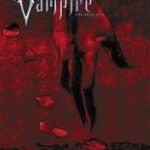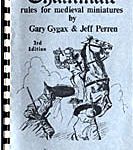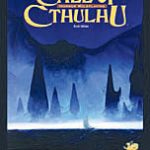first person
Storytelling Games as a Creative Medium

Will Hindmarch contests Greg Costikyan's challenge to the idea that "games have something to do with stories" by contending that "storytelling games reconcile the theoretically antithetical relationship between their two halves - story and game."
Games, Storytelling, and Breaking the String
Greg Costikyan revisits the narrative versus game-play debate that continues to be a staple of both Game Studies and Game Design. He presents a spectrum that ranges from game-focused forms to narrative-centric models, and suggests that free-form role-playing may be the most desireable marriage of narrative and game-play.
From the Basement to the Basic Set: The Early Years of Dungeons & Dragons

Erik Mona takes a first step toward measuring the cultural impact of Gygax and Arneson's Dungeons & Dragons by providing a pocket history of the game's generation and evolution. Mona explains the addition of character development as a game goal - the innovation that distinguishes D&D from its predecessors, and started the role-playing revolution.
Narrative Structure and Creative Tension in Call of Cthulhu

Kenneth Hite argues that the long-running, H.P. Lovecraft-inspired Call of Cthulhu franchise differs from traditional tabletop role-playing in its focus on suspense rather than character growth. Hite's analysis suggests that in its origins and emphasis on narrative structure Cthulhu is a highly literary game.
Playing with the Mythos
Van Leavenworth, in his response to Hite, delves more deeply into Cthulhu's literariness, in particular the "large adventure book 'footprint'" of the series. He contends that the Lovecraft mythos provides a framework for the generation of narratives that - unlike many RPG stories - hold up beyond the game-play session.